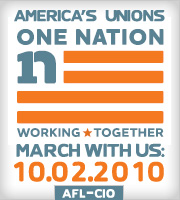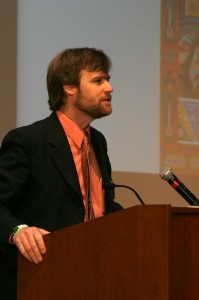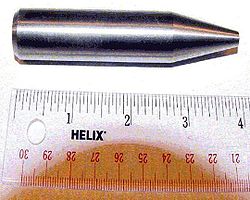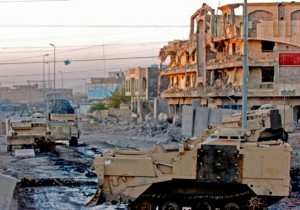Hans von Sponeck is a former UN assistant secretary general and was UN humanitarian co-ordinator for Iraq from 1998 until he resigned in protest in March 2000.
Dear Mr. Blair,
You do not know me. Why should you? Or maybe you should have known me and the many other UN officials who struggled in Iraq when you prepared your Iraq policy. Reading the Iraq details of your “journey”, as told in your memoir, has confirmed my fears. You tell a story of a leader, but not of a statesman. You could have, at least belatedly, set the record straight. Instead you repeat all the arguments we have heard before, such as why sanctions had to be the way they were; why the fear of Saddam Hussein outweighed the fear of crossing the line between concern for people and power politics; why Iraq ended up as a human garbage can. You preferred to latch on to Bill Clinton’s 1998 Iraq Liberation Act and George W Bush’s determination to implement it.
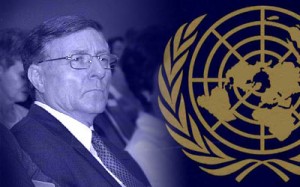 You present yourself as the man who tried to use the UN road. I am not sure. Is it really wrong to say that, if you had this intention, it was for purely tactical reasons and not because you wanted to protect the role of the UN to decide when military action was justified? The list of those who disagreed with you and your government’s handling of 13 years of sanctions and the invasion and occupation of Iraq is long, very long. It includes Unicef and other UN agencies, Care, Caritas, International Physicians for the Prevention of Nuclear War, the then UN secretary general, Kofi Annan, and Nelson Mandela. Do not forget, either, the hundreds of thousands of people who marched in protest in Britain and across the world. Are we all naive, delusional victims of a dictator’s propaganda?
You present yourself as the man who tried to use the UN road. I am not sure. Is it really wrong to say that, if you had this intention, it was for purely tactical reasons and not because you wanted to protect the role of the UN to decide when military action was justified? The list of those who disagreed with you and your government’s handling of 13 years of sanctions and the invasion and occupation of Iraq is long, very long. It includes Unicef and other UN agencies, Care, Caritas, International Physicians for the Prevention of Nuclear War, the then UN secretary general, Kofi Annan, and Nelson Mandela. Do not forget, either, the hundreds of thousands of people who marched in protest in Britain and across the world. Are we all naive, delusional victims of a dictator’s propaganda?
You suggest that you and your supporters – the “people of good will”, as you call them – are the owners of the facts. Your disparaging observations about Clare Short, a woman with courage who resigned as international development secretary in 2003, make it clear you have her on a different list. You appeal to those who do not agree to pause and reflect. I ask you to do the same. Those of us who lived in Iraq experienced the grief and misery that your policies caused. UN officials on the ground were not “taken in” by a dictator’s regime. We were “taken in” by the challenge to tackle human suffering created by the gravely faulty policies of two governments – yours and that of the United States – and by the gutlessness of those in the Middle East, Europe and elsewhere who could have made a difference but chose otherwise. The facts are on our side, not on yours.
Here are some of those facts. Had Hans Blix, the then UN chief weapons inspector, been given the additional three months he requested, your plans could have been thwarted. You and George W Bush feared this. If you had respected international law, you would not, following Operation Desert Fox in December 1998, have allowed your forces to launch attacks from two no-fly zones. Allegedly carried out to protect Iraqi Kurds in the north and Iraqi Shias in the south, these air strikes killed civilians and destroyed non-military installations.
I know that the reports we prepared in Baghdad to show the damage wreaked by these air strikes caused much anger in Whitehall. A conversation I had on the sidelines of the Labour party conference in 2004 with your former foreign secretary Robin Cook confirmed that, even in your cabinet, there had been grave doubts about your approach. UN Resolution 688 was passed in 1991 to authorise the UN secretary general – no one else – to safeguard the rights of people and to help in meeting their humanitarian needs. It did not authorise the no-fly zones. In fact, the British government, in voting for Resolution 688, accepted the obligation to respect Iraq’s sovereignty and territorial integrity.
I was a daily witness to what you and two US administrations had concocted for Iraq: a harsh and uncompromising sanctions regime punishing the wrong people. Your officials must have told you that your policies translated into a meagre 51 US cents to finance a person’s daily existence in Iraq. You acknowledge that 60 per cent of Iraqis were totally dependent on the goods that were allowed into their country under sanctions, but you make no reference in your book to how the UK and US governments blocked and delayed huge amounts of supplies that were needed for survival.
In mid-2002, more than $5bn worth of supplies was blocked from entering the country. No other country on the Iraq sanctions committee of the UN Security Council supported you in this. The UN files are full of such evidence. I saw the education system, once a pride of Iraq, totally collapse. And conditions in the health sector were equally desperate. In 1999, the entire country had only one fully functioning X-ray machine. Diseases that had been all but forgotten in the country re-emerged.
You refuse to acknowledge that you and your policies had anything to do with this humanitarian crisis. You even argue that the death rate of children under five in Iraq, then among the highest in the world, was entirely due to the Iraqi government. I beg you to read Unicef’s reports on this subject and what Carol Bellamy, Unicef’s American executive director at the time, had to say to the Security Council. None of the UN officials involved in dealing with the crisis will subscribe to your view that Iraq “was free to buy as much food and medicines” as the government would allow. I wish that had been the case. During the Chilcot inquiry in July this year, a respected diplomat who represented the UK on the Security Council sanctions committee while I was in Baghdad observed: “UK officials and ministers were well aware of the negative effects of sanctions, but preferred to blame them on the Saddam regime’s failure to implement the oil-for-food programme.”
No one in his right mind would defend the human rights record of Saddam Hussein. Your critical words in this respect are justified. But you offer only that part of this gruesome story. You quote damning statements about Saddam Hussein made by Max van der Stoel, the former Dutch foreign minister who was UN special rapporteur on human rights in Iraq during the time I served in Baghdad. You conveniently omitted three pertinent facts: van der Stoel had not been in Iraq since 1991 and had to rely on second-hand information; his UN mandate was limited to assessing the human rights record of the Iraqi government and therefore excluded violations due to other reasons such as economic sanctions; and his successor, Andreas Mavrommatis, formerly foreign secretary in Cyprus, quickly recognised the biased UN mandate and broadened the scope of his review to include sanctions as a major human rights issue. This was a very important correction.
Brazil’s foreign minister, Celso Amorim, who in the years of sanctions on Iraq was his country’s permanent representative to the UN, is not mentioned in your book. Is that because he was one of the diplomats who climbed over the wall of disinformation and sought the truth about the deplorable human conditions in Iraq in the late 1990s? Amorim used the opportunity of his presidency of the UN Security Council to call for a review of the humanitarian situation. His conclusion was unambiguous. “Even if not all the suffering in Iraq can be imputed to external factors, especially sanctions, the Iraqi people would not be undergoing such deprivations in the absence of the prolonged measures imposed by the Security Council and the effects of war.”
Malaysia’s ambassador to the UN, Hasmy Agam, starkly remarked: “How ironic it is that the same policy that is supposed to disarm Iraq of its weapons of mass destruction has itself become a weapon of mass destruction.” The secretary general, too, made very critical observations on the humanitarian situation in Iraq. When I raised my own concerns in a newspaper article, your minister Peter Hain repeated what the world had become accustomed to hearing from London and Washington: it is all of Saddam’s making. Hain was a loyal ally of yours. He and others in your administration wrote me off as subjective, straying off my mandate, not up to the task, or, in the words of the US state department’s spokesman at the time, James Rubin: “This man in Baghdad is paid to work, not to speak!”
My predecessor in Baghdad, Denis Halliday, and I were repeatedly barred from testifying to the Security Council. On one occasion, the US and UK governments, in a joint letter to the secretary general, insisted that we did not have enough experience with sanctions and therefore could not contribute much to the debate. You were scared of the facts.
We live in serious times, which you helped bring about. The international security architecture is severely weakened, the UN Security Council fails to solve crises peacefully, and there are immense double standards in the debate on the direction our world is travelling in. A former British prime minister – “a big player, a world leader and not just a national leader”, as you describe yourself in your book – should find little time to promote his “journey” on a US talk show. You decided differently. I watched this show, and a show it was. You clearly felt uncomfortable. Everything you and your brother-in-arms, Bush, had planned for Iraq has fallen apart, the sole exception being the removal of Saddam Hussein. You chose to point to Iran as the new danger.
Whether you like it or not, the legacy of your Iraq journey, made with your self-made GPS, includes your sacrifice of the UN and negotiations on the altar of a self-serving alliance with the Bush administration. You admit in your book that “a few mistakes were made here and there”. One line reads: “The intelligence was wrong and we should have, and I have, apologised for it.” A major pillar of your case for invading Iraq is treated almost like a footnote. Your refusal to face the facts fully is the reason why “people of good will” remain so distressed and continue to demand accountability.
To read more about life in Iraq under the sanctions, click here.


